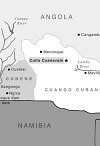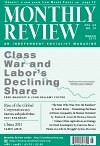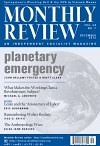
History

Cuito Cuanavale, Angola
25th Anniversary of a Historic African Battle
Prohibited from meeting openly by South Africa’s apartheid government, the Seventh Congress of the South African Communist Party was held in Cuba in April 1989. When Jorge Risquet, one of Fidel Castro’s shrewdest and most trusted colleagues, addressed the gathered members, he was greeted with the resounding salutation “Viva Cuito Cuanavale!” For the South African delegates, many who had come from military duty in Angola itself where the African National Congress (ANC) had military training facilities courtesy of the government, there was no doubt whatsoever that an epic victory had been recently won at the remote town of Cuito Cuanavale in Angola. The loser was the apartheid military machine in that embattled country in March 1988, constituting a historic turning point in the struggle for the total liberation of the region from racist rule and aggression. | more…
Memories of the Afro-Caribbean Left
The name “Walter Rodney” has receded from public memory in the last few decades. Only yesterday, it seems to this reviewer, Rodney was the most promising young political scholar of Afro-Caribbean origin, influential from parts of Africa to Britain and North America, not to mention his home Guyana, as well as Jamaica, Trinidad, and other anglophone islands. He was revered: great things were expected of him, as great things were expected of the new phase of regional history in which independence had been achieved and masses mobilized for real change. | more…

March 2013 (Volume 64, Number 10)
The history of capitalism is replete with cases of successful captains of industry who, suddenly concerned with their place in history, decide to write a book celebrating their achievements, while articulating a new philosophy of philanthropic capitalism—usually with the help of a ghostwriter or “collaborator” of some sort.… [In this genre] is a new book, Conscious Capitalism: Liberating the Heroic Spirit of Business, written by Whole Foods Market co-CEO John Mackey in collaboration with Bentley University professor of marketing Raj Sisodia.… [I]n spite of all the references to a new form of “heroic capitalism,” which cares about employees and customers, Mackey, like most of his class, is a strong proponent of the most extreme forms of neoliberal exploitation. Both in Conscious Capitalism and in his public actions he has shown himself to be virulently anti-union, priding himself on keeping Whole Foods Market 100 percent union free, and slashing the wages of his workers even as profits have increased. | more…
China 2013
The debates concerning the present and future of China—an “emerging” power—always leave me unconvinced. Some argue that China has chosen, once and for all, the “capitalist road” and intends even to accelerate its integration into contemporary capitalist globalization. They are quite pleased with this and hope only that this “return to normality” (capitalism being the “end of history”) is accompanied by development towards Western-style democracy (multiple parties, elections, human rights). They believe—or need to believe—in the possibility that China shall by this means “catch up” in terms of per capita income to the opulent societies of the West, even if gradually, which I do not believe is possible. The Chinese right shares this point of view. Others deplore this in the name of the values of a “betrayed socialism.” Some associate themselves with the dominant expressions of the practice of China bashing in the West. Still others—those in power in Beijing—describe the chosen path as “Chinese-style socialism,” without being more precise. However, one can discern its characteristics by reading official texts closely, particularly the Five-Year Plans, which are precise and taken quite seriously. | more…
The Man Who Was Over the Rainbow
When I was a lad, I wrote amorous ditties, To Judy, Aleine, Edelina, and Sue. But now that I’m gray, I’ve abandoned those pretties, I’m singing my songs to the MONTHLY REVIEW.… So sang E.Y. “Yip” Harburg, to the tune of “The Streets of Laredo,” at Monthly Review’s fifteenth anniversary party. Accompanying him on piano was my late wife, the Judy to whom Yip wrote ditties. You will not find her or Aleine Mufson mentioned in the pages of this biography. Nor will you find cited any who, because they rubbed elbows or other body parts with Harburg, could lead the reader to the fullest possible understanding of who he was. | more…
Tadeusz Kowalik and the Accumulation of Capital
Tadeusz Kowalik, the doyen of Polish political economists, died at his home in Warsaw on July 30, 2012. Kowalik is best known as the last surviving coauthor of the great Polish economist, Michał Kalecki (1899–1970), as an advisor to the Polish trade union movement Solidarity when it played a key part in bringing down the Communist government in the 1980s, and subsequently as a fierce critic of the capitalism that was put in its place. He challenged both the commonly accepted view of the Keynesian Revolution and the inability of Polish Communists to come to terms with their revolutionary past and find a place for themselves in the modern world. | more…
Whiteness as a Managerial System
Race and the Control of U.S. Labor
In this highly original book historians David Roediger and Elizabeth Esch probe deeply into the relationship of institutionalized racism to the management of labor in the United States. As they emphasize, “race management” has been a much neglected topic in the social sciences. Focusing on the century from 1830 to 1930, they accent the interesting and accurate idea of “whiteness as management”—that is, of labor management theory among white employers and experts as honed within the arena of persisting white-racist framing and action. Among other key points, we see here how capitalistic employers long used the racial and ethnic differences among workers to divide and conquer them. The “scientific” management of workers and the white-racist framing of society evolved together over this long century they examine, as well as over subsequent decades. | more…

December 2012 (Volume 64, Number 7)
Notes from the Editors
As we write these notes at the beginning of November climate change is once again in the headlines in the United States and around the world. This is because of the devastating impact of Hurricane Sandy, not only on islands in the Caribbean, but also on the northeastern United States and particularly New York and New Jersey, with the impact of the storm dramatized by the damage to New York City. Coincidentally almost twenty-five years ago it was a heat wave experienced in New York, coinciding with climatologist James Hansen’s famous testimony to Congress, that first made global warming a public issue, and increasingly an international one with the formation that year of the United Nations Intergovernmental Panel on Climate Change. Whether Hurricane Sandy’s destruction in New York and New Jersey will lead to a similar elevation of climate change as a public issue this time around remains to be seen. | more…
Lenin and the “Aristocracy of Labor”
Remembering Walter Rodney
In February 1967 came the Arusha Declaration. The ruling party, the Tanganyika African National Union (TANU), issued the Arusha Declaration and a policy of socialism and self-reliance. Our word in Kiswahili, Ujamaa (translated as extended family or familyhood), became the official policy. A number of companies in the commanding heights of the national economy were nationalized by the government. That started a whole new debate at the university. Walter Rodney had just come from SOAS (the School of Oriental and African Studies, University of London) and became a young lecturer here. In the conference on rethinking the role of the university in now socialist Tanzania, he played a very important role. | more…
The Neoclassical Apology for Monopoly Capital
While the global economy is mired in ever-deepening crisis, there is no abatement in the propaganda rationalizing free markets and perfect competition. In the world of “perfect competition” governed by the “invisible hand” of market forces, no single actor (or even a combination of a few) is in a position to influence the market equilibrium, and prices are determined by the balance of demand and supply. This is a win-win world, where actors have sufficient information for arriving at their respective choices, consumers are free to make the correct decisions, and this self-governing system leads to progressively increasing welfare for all.… In this mythological world, there is also a hell, whose name is monopoly or oligopoly, the exact opposite of perfect competition, where a few sellers or producers distort the markets and generate inefficiency, monopoly profits, and compromise consumer choice.… The only difficulty with this mythology is that, while we are constantly told that the world is increasingly being governed by competition and market forces, the real world of business and industry is moving rapidly away from such free competition, as concentration, domination, and control of most economic activities has become common place.… It might be that perfectly competitive markets will provide answers for all of our ills, but in the real world, there is an absence of “free markets,” with market rigging and failure everywhere in the economy. | more…